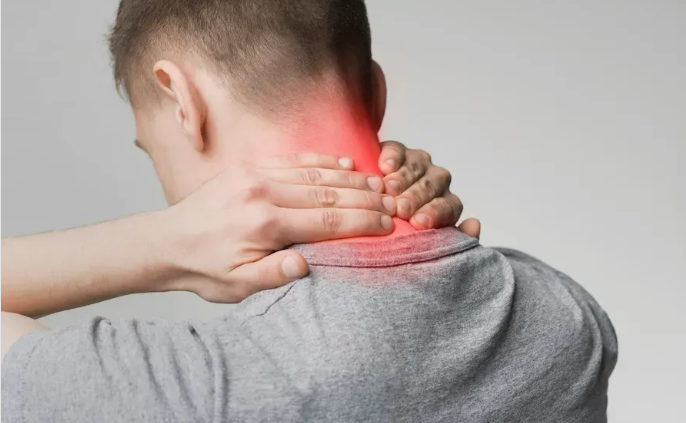You may have slept in a bad position, woken up stiff, and couldn’t look down at your feet to tie them. Or you might have spent the day bent over your desk and then stood up to realize how much it hurt your neck. You may have taken painkillers, stretched, and hoped that the pain would disappear by the morning or by the following week.
There are other times, however, when neck pain goes beyond poor posture. If you don’t seek medical attention, your neck pain may not go away and may even worsen. Learn whether you should visit a doctor or just rest and apply an ice pack to your neck.
### Neck Pain Causes
Neck pain can be caused by many things other than poor posture or sleeping positions. Neck pain can result from injuries, chronic diseases, or even traumatic events. Seek medical attention as soon as possible if the cause of your neck pain is unclear, as it could be due to a chronic illness or a serious injury.
Tech Neck
Tech (or text neck) is a term used to describe neck pain caused by looking down all the time.
Looking down puts 50-60 pounds of pressure on your neck. Neck pain can result from excessive pressure on the neck, particularly if applied for long periods.
Stress Headaches
Neck pain can be caused by headaches. These headaches are usually triggered by emotional stress and prolonged periods of muscle tension.
Muscle Strain or Sprain
Neck pain can also result from a strained or sprained neck muscle. These strains can be caused by sports injuries, sleeping in awkward positions, lifting heavy objects, or sudden movements.
Whiplash Injury
The name of the injury is “whiplash” — it occurs when the head moves violently from side to side or back and forth. This stretching of the neck muscles, ligaments, vertebrae, and nerves can cause neck stiffness and pain. Whiplash is often caused by any “whipping” of the neck, but it most commonly occurs in auto accidents. Contact sports such as football can also cause it.
Children and infants are at a higher risk of severe whiplash injuries because their necks and heads are smaller compared to the rest of their bodies. This vulnerability can cause whiplash if they are shaken too violently. Infants and children may suffer permanent brain damage or nerve damage from whiplash, even with mild treatment and time. Adults who do not treat whiplash may lose sensation or the ability to move.
Adults who suffer an injury that may lead to whiplash should consult a doctor to ensure the whiplash doesn’t become too severe and to evaluate other injuries. Because infants are more fragile, they need immediate medical attention.
This article was written by an auto accident doctor at Florida Medical Pain Management. Florida Medical Pain Management is proud to offer comprehensive pain management services to a diverse group of patients. Patients at Florida Medical Pain Management can get help managing hip, knee, leg, and neck pain. The practice also offers comprehensive arthritis management, along with treatments for auto accidents, sports, and work injuries.

